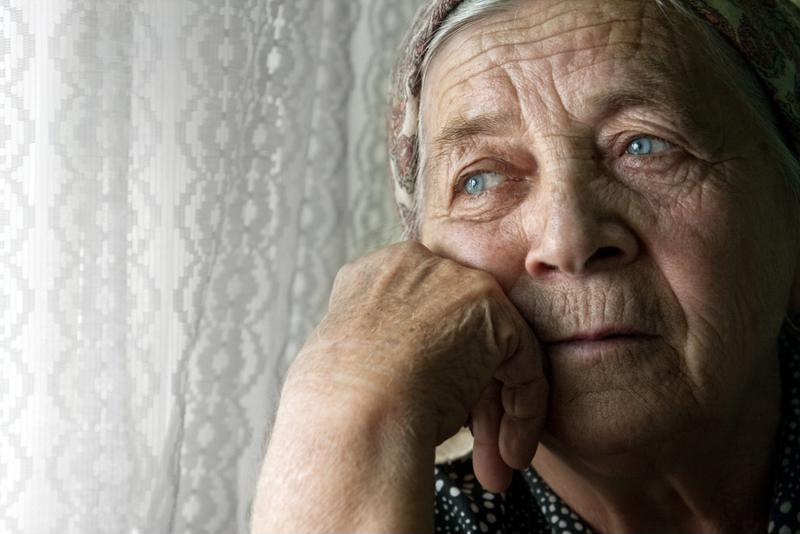
Capturing the devastation of Alzheimer’s disease on film has proven to be a difficult task, but a movie new to the screen Jan. 16 has managed to portray this struggle with compassion and tenderness: “Still Alice.”
Based on the novel by Lisa Genova, the movie stars Julianne Moore as Alice Howland, a Columbia linguistics professor who begins to notice symptoms such as confusion, difficulty remembering and other signs of dementia. After reaching out for help, she learns that she has early-onset Alzheimer’s disease. The story brings the viewer along the difficult journey that she and her family (her husband and three children) must endure as Alice falls further into dementia – as she loses touch with her wit and intelligence and slips away into a state of confusion and fragility.
Due to her extraordinary performance in “Still Alice,” Moore won a Golden Globe in the “best actress in a motion picture – drama” category. Her character gives us a look at not just the effects of Alzheimer’s, but the devastating impact it can have a women and their families. Throughout the film, executive produced by Maria Shriver whose father was diagnosed with Alzheimer’s, viewers watch as Alice grieves over losing touch with reality.
“The story brings the viewer along the difficult journey that Alice must endure as she falls further into dementia – as she loses touch with her wit and intelligence and slips away into a state of confusion.”
Alzheimer’s and women
By allowing the viewer to experience not just sympathy but also empathy with the protagonist, “Still Alice” does much more than entertain – it raises awareness of the way that Alzheimer’s can completely devastate one’s life as well as the lives of loved ones. For women, dementia is an especially important subject, as females have a significantly higher risk of developing this cognitive condition. According to the Alzheimer’s Association, of the 5 million Americans age 65 and older diagnosed with Alzheimer’s, about 3.2 million are female while only 1.8 million are male. That makes this disease twice as prevalent among women as breast cancer, and the rate of Alzheimer’s is only expected to increase as people live longer.
Detecting the early signs of Alzheimer’s
In the film, Alice takes notice of her symptoms early on. As such, she was able to seek treatment before her condition progressed too far, and she was able to develop a plan for the future for the benefit of both herself and her family. The Alzheimer’s Association outlines 10 basic warning signs of the cognitive disorder, of which an individual in the early stages of dementiamay experience all or some:
- Memory loss that interferes with everyday life
- Difficulty making and following plans or solving problems
- Issues with completing familiar tasks, such as work duties and at-home chores
- Losing track of time or forgetting where you are or how you got there
- Difficulty judging distance, making sense of text or differentiating colors
- Trouble conversing and writing, particularly when it comes to vocabulary
- Misplacing items and being unable to retrace steps
- Lack of judgment skills and a tendency to make poor decisions
- Withdrawal from social life, work and even family
- Changes in personality and tendencies to feel anxious, depressed and suspicious in familiar settings

Prevention
When it comes to delaying the onset of Alzheimer’s disease, people can take preventative steps in order to boost brain health and strengthen cognitive function. As Dr. Shirley Newell, the chief medical officer at Aegis Living, explained during a December 2014 interview, cardiovascular health is one of the main pathways to staving off this form of dementia.
“[W]hat’s good for the heart is good for the brain,” Newell said. “We know that adequate exercise, good nutrition and sleep are critical for avoiding diabetes and heart disease. We also know that it’s critical not to smoke and to avoid substance abuse, particularly alcohol.”
“Another important factor in Alzheimer’s prevention, in combination with diet and exercise, is social interaction, which has been clinically proven to enhance brain vitality.”
Researchers have yet to find a definitive cause or a cure for Alzheimer’s disease. As such, there has yet to be determined one method for defending against dementia. However, the medical community has found that a generally healthy lifestyle can lower the risk of such chronic diseases.
Diet
A review published in the Journal of Alzheimer’s Disease looked into the effectiveness of a Mediterranean diet in preventing or delaying Alzheimer’s. This diet, which focuses on plant-based foods, healthy fats (such as olive oil) and fish, is widely known to have immense benefits for the heart, even reducing the risk of cardiovascular disease. The researchers’ meta-analysis revealed that there is a strong link between adherence to a Mediterranean diet and a lower risk of Alzheimer’s disease, among other major chronic degenerative diseases.
Social activity
Another important factor in Alzheimer’s prevention, in combination with diet and exercise, is social interaction, which has been clinically proven to enhance brain vitality. According to the National Institutes of Health, studies have shown that frequent social activity has a significant link to higher cognitive function. It’s unclear whether this brain benefit comes from the social interaction itself or factors related to it, such as intellectual stimulation that tends to come with such interaction. However, one thing is clear: Staying socially active helps to reduce the risk of Alzheimer’s.
Those experiencing symptoms of depression should see a physician to determine a diagnosis, so they can take preventative measures and begin to plan for the future now.
